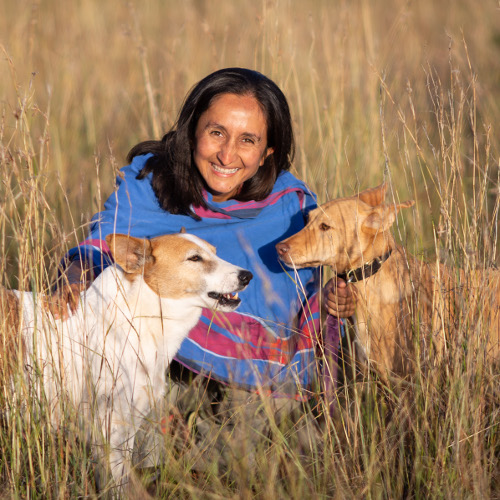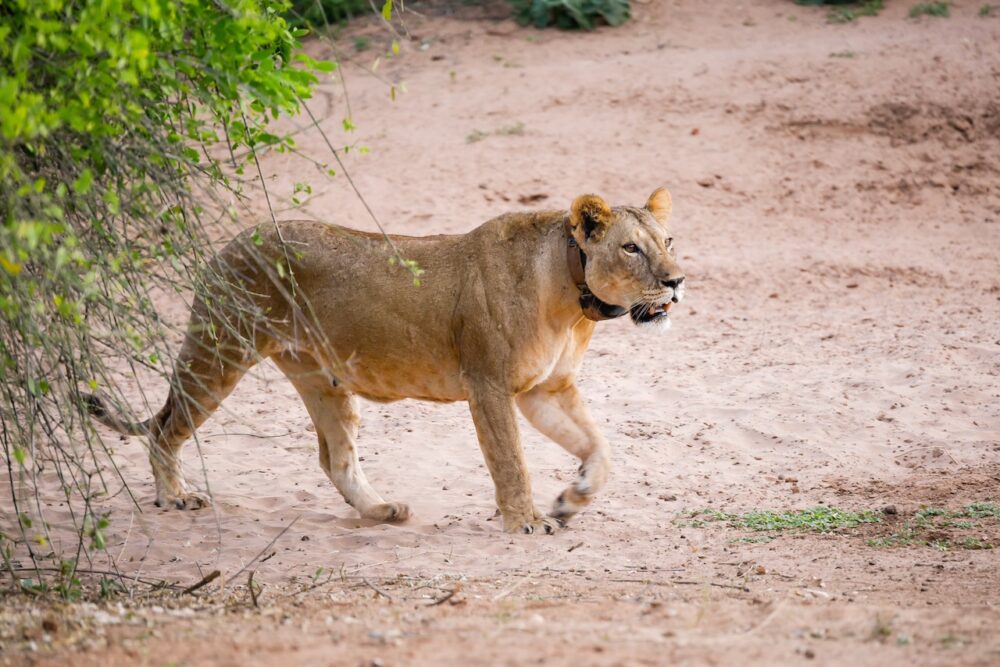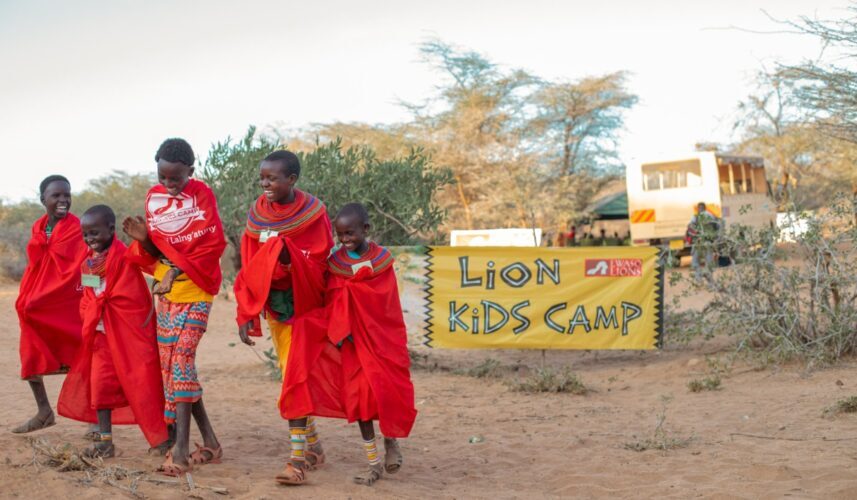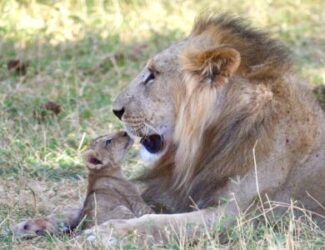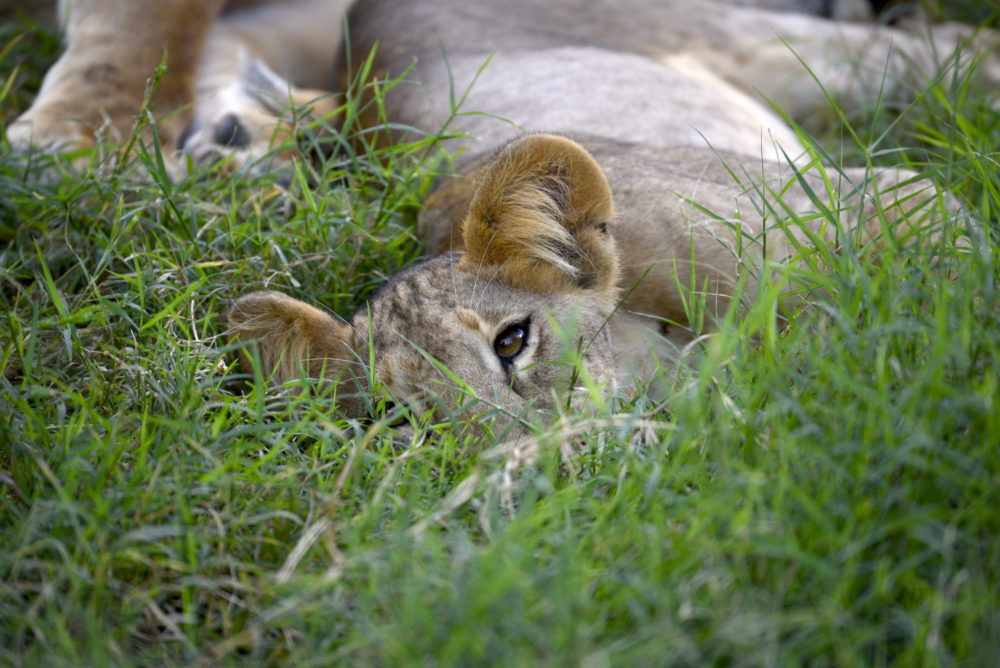
Our experiences and observations during Covid-19
“Has the pandemic affected lions in your area?”
“Has the drop in tourism impacted on your operations or the lions?”
“Have the threats towards lions changed this year?”
These are the questions our team has been asked by lots of concerned friends and partners over the past few months. These questions have given us an opportunity to reflect on and think about the year.
At the onset of Covid-19 in Kenya and when our government put in restrictions, Ewaso Lions implemented a strict protocol to keep our teams, our families and our communities safe. In addition, working with partners, we were able to distribute over 2000 masks, develop posters on Covid-19 safety in 3 languages, deliver hygienic supplies including tippy taps, thermometers, sanitizer, soaps and more. We were very conscious of the fact that health clinics are underserved in our region, and we are grateful to report that although cases are on the rise as the year draws to a close, our areas of operation have had a generally low rate of infection. We hope it stays that way.
 “Lions don’t know Corona. They don’t restrict their movements because of Corona. They just move as usual. We go out every day to find the lions because they are still going after livestock, and people still go after the lions.”
“Lions don’t know Corona. They don’t restrict their movements because of Corona. They just move as usual. We go out every day to find the lions because they are still going after livestock, and people still go after the lions.”
Yesalai Lemachokoti, Monitoring Officer
Our core work of protecting lions in partnership with our communities has to continue. The threats to lions are still there. Habitat loss, lack of wild prey, retaliatory killing, infrastructure development – threats that we have been working on for over a decade. But as a result of Covid-19 – we were faced with a new challenge we have never had to deal with before! How to deal with conflict whilst social distancing and without bringing large groups of people together.
 “Usually when lions kill livestock, we do barazas (meetings) and attend to that conflict. Sometimes there would be 20-50 people at that conflict. You can go and talk to them and be social with them to really explain why lions are causing these problems and how we can stop that conflict from happening in the first place. But at the moment, it is very difficult for us to have those big meetings with the community. So we have minimized how we interact with a big number of people and we talk to fewer people at a time. We go from village to village and elder to elder – without bringing lots of people together. That is how we are now dealing with conflict.” Jeneria Lekilelei, Director of Community Conservation.
“Usually when lions kill livestock, we do barazas (meetings) and attend to that conflict. Sometimes there would be 20-50 people at that conflict. You can go and talk to them and be social with them to really explain why lions are causing these problems and how we can stop that conflict from happening in the first place. But at the moment, it is very difficult for us to have those big meetings with the community. So we have minimized how we interact with a big number of people and we talk to fewer people at a time. We go from village to village and elder to elder – without bringing lots of people together. That is how we are now dealing with conflict.” Jeneria Lekilelei, Director of Community Conservation.
Our conservation landscape is vast and only 26% of the area we work in has a presence of permanent tourism. And the tourism industry has suffered – jobs have been lost, and people’s lives have been affected. The presence of resident conservation-conscious tour guides that made efforts to help us with lion monitoring was missed. But the drop in tourism numbers hasn’t affected lions as such here. In fact on some days it has been a relief to witness the lions and other carnivores moving without any form of harassment from irresponsible tourist vehicles – a phenomenon that has been known to hinder carnivore hunting and reproduction. The 10 cubs that were born here this year have all survived. In many ways, the fact that conservation is not tethered to tourism in this landscape has taught us a critical lesson: lions and “wild life” as a whole have to mean more to us than the dollars they bring into people’s lives. The more diverse ways we value wildlife, the more resilient the landscape is when threats come along. This has been true for northern Kenya. However, it is important to note that this is not everywhere.
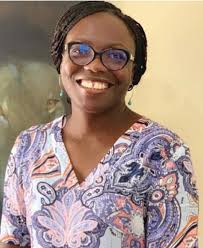 “The Maasai Mara relies on tourism as a major income stream and the pandemic caught stake-holders off guard. We have witnessed lower tolerance towards wildlife across the Mara. There is more bushmeat snaring across the landscape and poisoning incidents are on the rise. Organisations like ours (Kenya Wildlife Trust) that rely on tourism dollars to fund some activities have been hit hard. It is time to invest in, and grow, income streams that are sustainable and improve livelihoods at a household (and landscape) level. Tourism should be a secondary, not primary, source of income.” Dr Irene Amoke, Executive Director of Kenya Wildlife Trust and Ewaso Lions Advisory Committee member.
“The Maasai Mara relies on tourism as a major income stream and the pandemic caught stake-holders off guard. We have witnessed lower tolerance towards wildlife across the Mara. There is more bushmeat snaring across the landscape and poisoning incidents are on the rise. Organisations like ours (Kenya Wildlife Trust) that rely on tourism dollars to fund some activities have been hit hard. It is time to invest in, and grow, income streams that are sustainable and improve livelihoods at a household (and landscape) level. Tourism should be a secondary, not primary, source of income.” Dr Irene Amoke, Executive Director of Kenya Wildlife Trust and Ewaso Lions Advisory Committee member.
We have seen the communities we work with continue as they normally do – going about their pastoral way of life as usual. What this year has highlighted is the resilience of our communities – who are able to carry on with or without tourism, with or without Covid-19.
“We are all pastoralists. Once we have our livestock, we have grass, we have milk to sustain our communities – we don’t need anything else”.
Jeneria Lekilelei, Director of Community Conservation
This way of life should be highlighted, acknowledged and supported. Often it isn’t, and there are so many pressures on communities to change this way of life. This year has shown that actually – the exact opposite needs to happen. One challenge the communities have faced on a commercial level as a result of Covid-19 is that it has become harder to trade their livestock at their regular markets especially when our country was in lockdown. This should force everyone to be more innovative in finding approaches to livestock sale to sustain the pastoral economy.
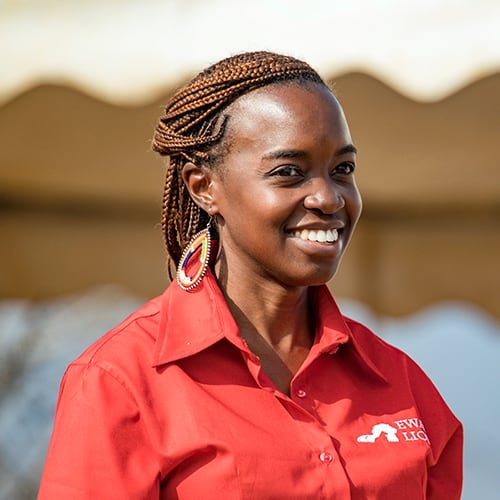 “Pastoralism has been termed a backward way of life. Yet it is because of this way of life that landscapes remain open for wildlife, and also the reason why a plethora of rich cultures still exist. Now, it has been essential in allowing communities to endure a pandemic while all around them is collapsing. Pastoralism is not a relic of the past. It is a lesson for the future.” Resson Kantai Duff, Deputy Director
“Pastoralism has been termed a backward way of life. Yet it is because of this way of life that landscapes remain open for wildlife, and also the reason why a plethora of rich cultures still exist. Now, it has been essential in allowing communities to endure a pandemic while all around them is collapsing. Pastoralism is not a relic of the past. It is a lesson for the future.” Resson Kantai Duff, Deputy Director
As a Kenyan grassroots organisation, we have carried on as usual whilst of course taking all Covid-19 safety protocols in to account. We have watched our finances carefully. Our programmes have continued (we even started a new one!) and our team have all retained their positions on full-pay. We are here to stay – we hope this gives confidence to our communities and our supporters. In fact, we have more clarity of purpose. The word resilience to us has always invoked a vision of people and lions sharing the same landscape despite the challenges that come with it. But this year, resilience has taken on new meaning: people enduring a pandemic by forging forward with their pastoral way of life. And when the landscape emptied out of visitors, they turned around and saw resilience in us: grassroots organisations who had no intention of going anywhere. We are here to support them, the wildlife and the landscape that is our collective home. We are not a field-based project where people come in and out “in to the field”. We live and work here.
“Working from home has been a new experience for so many people around the world this year. But for us and me personally – Samburu has been my home for over 18 years and I have always worked from home. It is not new. We have continued as normal”.
Dr Shivani Bhalla, Founder and Executive Director.
Pandemics and crises come and go. We hope for the world’s sake, this one goes quickly! But this year of Covid-19 has taught us valuable lessons about who we are, the power in our work, and what communities need in order to sustain life in northern Kenya. The clarity we have now has given us a sharpened focus, and a new confidence we will tap into to help shape the future of conservation. As we come to the end of the year, we look around and see the rains. We see the wildlife and livestock thriving. For now, that is enough.
About Ewaso Lions
Ewaso Lions is dedicated to conserving lions and other large carnivores by promoting coexistence between people and wildlife. We are an independent 100% African wildlife conservation organisation based in northern Kenya which engages and builds the capacity of key demographic groups (warriors, women, and children) by developing approaches to reduce human-carnivore conflict. We conduct applied research and work with our communities to address ecological problems. We carry out educational initiatives to reinforce traditionally held beliefs and the evolving culture of conservation across the landscape.
—————————————————————————————————————————————————————————————————–
Disclaimer: This is a blog written by the Ewaso Lions team. Any views or opinions represented in this blog are personal and belong solely to Ewaso Lions and do not represent those of people, institutions or organisations that Ewaso Lions may or may not be associated with in a professional or personal capacity. Our views are not intended to malign any group, company, organisation or individual.
For more information please contact:
Dr Shivani Bhalla, Ewaso Lions –
sh*****@ew********.org
Resson Kantai Duff, Ewaso Lions –
re****@ew********.org
Dr Irene Amoke, Kenya Wildlife Trust –
ir*********@ke****************.org


